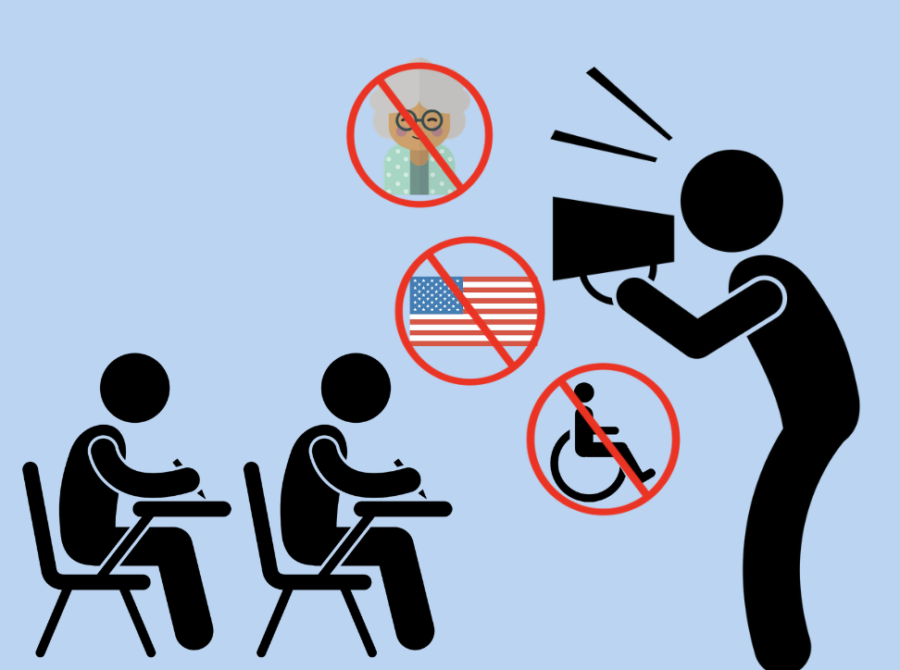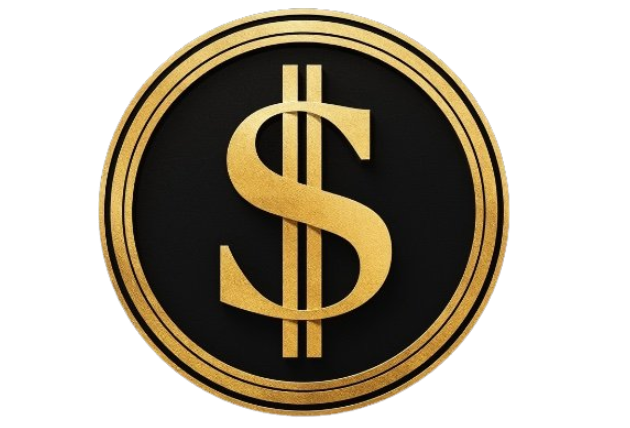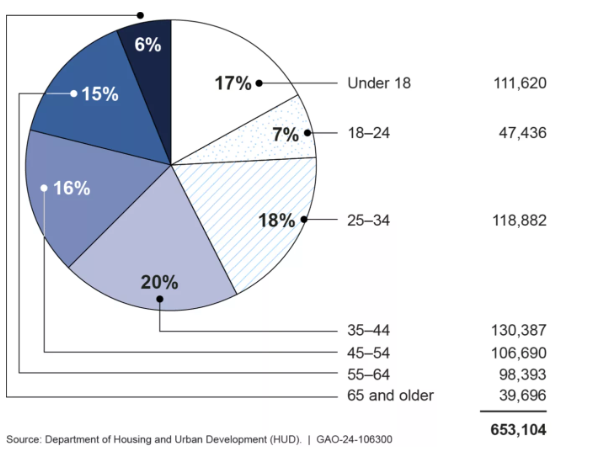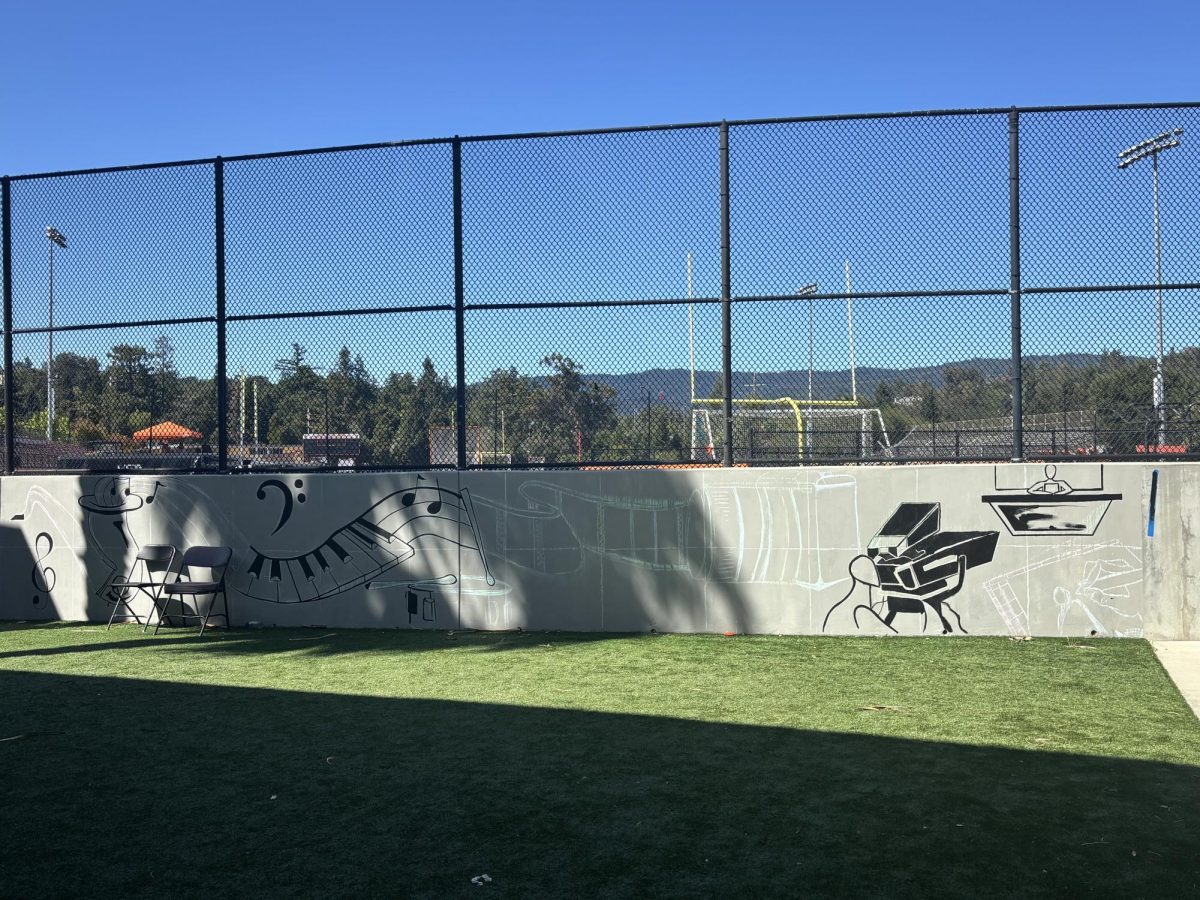Stanford University administrators launched the Elimination of Harmful Language Initiative (EHLI) encouraging the elimination and usage of words like “American,” “Hispanic,” “grandfather” and “immigrant” from being used on campus last May. The initiative provides students and faculty with alternative phrases in lieu of words that the initiative deems ‘harmful’.
On December 20, 2022, the group that organized the initiative officially addressed discussions going around at Stanford asserting that “the use of the term ‘American’ is not banned at Stanford, it is absolutely welcomed” and that the group failed to address their concern over the usage of the term “American” in a more “precise” and “appropriate” manner. In January of 2023, Chief Information Officer at Stanford University Steve Gallagher announced the removal of the EHLI website because their efforts “clearly missed the intended mark.”
Regardless of how this situation was handled, it sparks discussions about the dangers of language censorship, and whether it’s ethical and effective.
“As a person of color, it’s more offensive that [Stanford University is] trying to censor and ban these words instead of educating people on why they are bad,” Black Student Union President Nia Nau said. “I think it’s an education issue.”
On January 9, 2023, the University of Southern California (USC) School of Social Work announced that the term “field” will be removed from their curriculum due to negative connotations regarding slaves and immigrants. The USC School of Social Work quickly faced backlash similar to Stanford in which students responded with confusion and considered the ban “a stretch.”
Senior Vice President for Academic Affairs Elizabeth Graddy addressed the situation in an interview with the Daily Trojan, “We will continue to use words — including ‘field’ — that accurately encompass and describe our work and research.”
The idea of censoring language isn’t an entirely new concept; in 2012, the NYC Department of Education censored the words “birthday” and “dinosaur” in standardized tests in order to prevent offending those who don’t believe in evolution, and those like Jehovas Witnesses’ who don’t celebrate birthdays.
Although the intent may come from a place of sincerity, the reality is that this censorship often does more harm than good. Educating students and teachers about how to shape curriculums around tackling social issues objectively requires the direct usage of certain words. Through the restriction of words like “slave,” “African-American,” and even “dinosaur,” academic discussion is limited in the classroom.
“You can’t push that stuff under the table, that’s not the right way to go about it,” Nau said.
Although Stanford University did not technically promote banning the terms completely on campus, the goal of the EHLI was to ultimately encourage replacements for terms that the organization considers harmful.
“A lot of it is euphemisms,” Government/Economics teacher Andrew Ho said. “[the EHLI includes the phrase] Instead of saying addict, consider using a person with a substance use disorder. It’s a different side of the same coin.”
The EHLI was created to prompt a more welcoming and diverse environment at Stanford, in order to avoid offending any specific groups of people. It is arguable however that more value can be derived from understanding why a word is inappropriate to use instead of simply banning usage altogether.
“I think euphemisms are more socially acceptable, but it limits the ability to address a core problem,” Ho said. “As a history department, we’ve talked about using the term enslaved person rather than slavery, and I think that just prevents the core underlying issue [from being] addressed. Slavery was real, the slave trade was real.”
Language censoring also hinders the ability to address serious issues, which can have a regressive effect. There is nothing transformative nor progressive about making important social topics more difficult to talk about.
“It’s not impactful if it’s not with the intention of true understanding as to why you can’t say [a] word,” BSU Club Advisor Brandy Williams said. “So there’s an alert, but it’s not transformative.”
The purpose of education is to spark critical thinking; by preventing students and faculty from using specific terms, critical thinking is prevented within the classroom. What is considered “offensive language” could also be considered vital for talking about social issues.
“When you engage in intellectual, knowledge-based conversations, you run the risk of offending somebody,” Ho said. “Debates [and discussions] don’t have to be inherently combative. I believe in crafting norms around real conversation and true dialogue.”
There is a dramatic difference between a word that is subjectively offensive or in need of censorship like “American” in comparison to a deeply derogatory term like the “N-word.” Using a deeply offensive term, such as a racial slur, brings up the discussion of intention; how something is said can deeply affect whether or not some language should be censored in a specific context.
“There are certain words that just have a deep derogatory meaning, so they shouldn’t be used,” Williams said. “It’s about the understanding of why in certain spaces, it is and can be offensive.”
The ability to comprehend why something is offensive is the proper way to address a term with a negative cultural connotation. Allowing students to fully understand the reasoning behind why something could be negatively used is subjectively more valuable than preventing students from using a specific word as a whole.
“You [need to] know that socio-emotional understanding of who you’re talking to and what you’re talking about,” Williams said.
Language Censorship threatens democracy and the freedom to express personal opinions. The ability to freely engage in academic discourse is a necessity for moving toward a transformative future in which actual progress is being made.
In regards to language censoring in the eye of the law, on July 1, 2022, The governor of Florida Robert DeSantis took advantage of the republican supermajority in the state and signed the “Don’t Say Gay” Bill into law. This law “prohibits[s] classroom discussion about sexual orientation or gender identity in certain grade levels or in a specified manner.” Other states like Indiana have followed in Florida’s footsteps, censoring students and staff. This only means that censoring is becoming more and more of an issue at the legal level.
The signing of the “Don’t Say Gay” bill is very similar to Stanford EHLI, though their intentions are extremely different. Stanford University wants to prevent the usage of these words with the intent of using more diverse, expansive language to make academic discussions more inclusive, whereas DeSantis wants to silence and demote the LGBTQ+ community. This proves how tricky Language Censoring can be; even if words are censored with a positive intention, there will always be danger in limiting what someone can or can’t say.
“They [white institutions] want to ignore generational racism and ignore the effects that Jim Crow has had on employment and homelessness,” Nau said. “They want to ignore that, but they don’t want to ignore words. Instead of educating themselves they [Stanford as an institution,] are trying to censor everybody.”
For the past decade, the terms “Cancel culture,” or “Woke Culture” have worked their way into mainstream media, and younger generations seem to be more and more engaged with these concepts. “Cancel Culture” is the phenomenon in which someone is shunned or shamed for doing something that is not deemed as socially acceptable.” The fear of being “canceled” or blatantly attacked for having a dissenting opinion has also driven up the use of language censoring at institutions around the nation.
“I think that because of this ‘woke culture,’ people are extra sensitive,” Latino Leaders Club Advisor Juan Carlos Prado said. “School administrators at all levels don’t want to come across as insensitive, and in some cases, there are changes that have happened too fast without really measuring the consequences.”
Although the intention behind censoring specific words is a good idea in theory; executing this initiative through censorship is not effective.
“Talking about these issues is more important than people realize, which is why banning these words is ultimately wrong,” Nau concluded.












